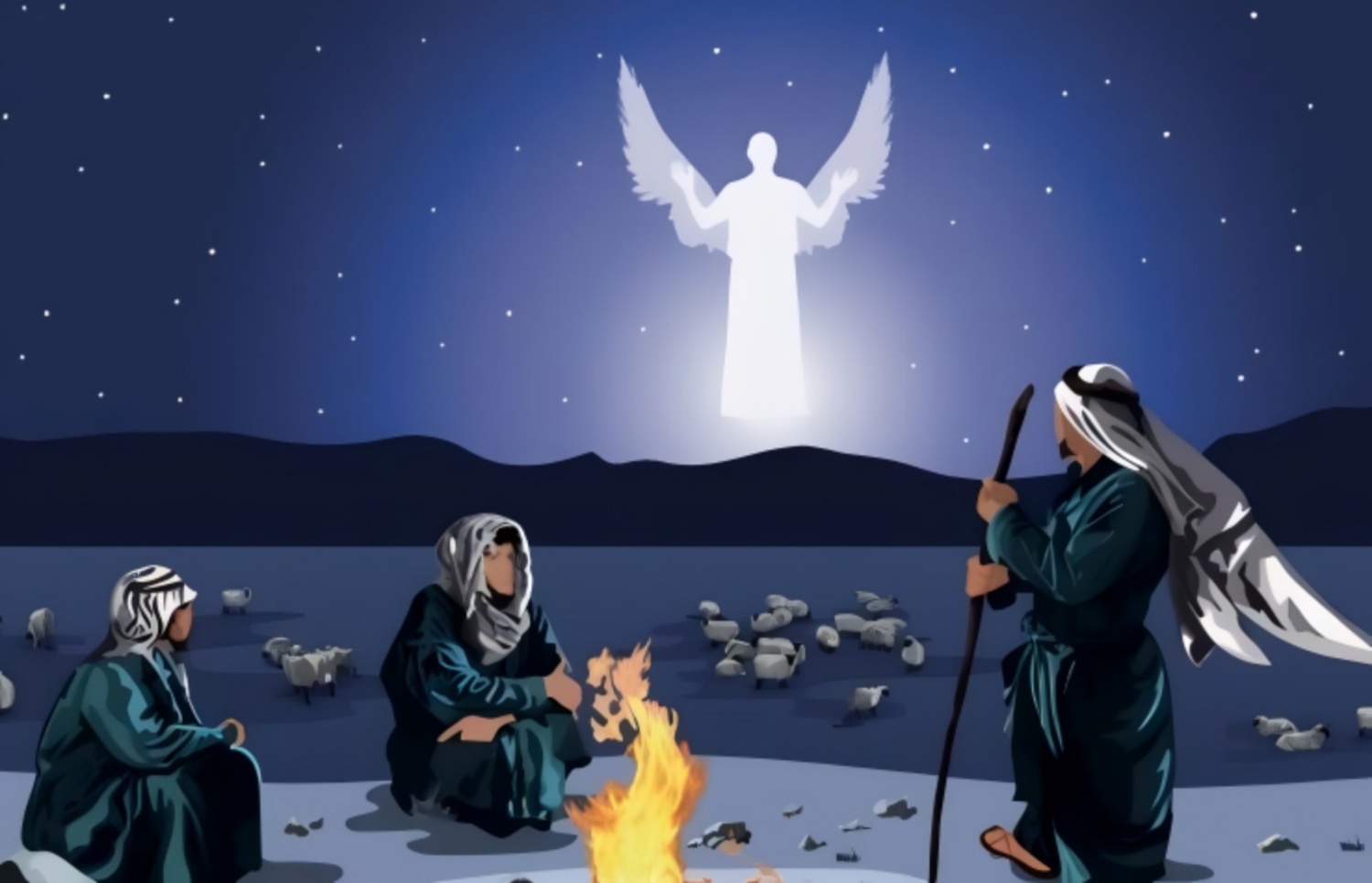The Gospel to the Shepherds

5 minutes to read
Who are shepherds?
Shepherds are those people who tend to flocks of sheep or goats. It is an ancient profession even found in the Bible. Abel was a shepherd (Gen 4:2) and so were many after him like Jacob, Moses, and even David. In fact, when Joseph introduced his family to Pharaoh, the king of Egypt, they told Pharaoh, “Your servants are shepherds, as our fathers were.” (Gen 47:3) So, the Israelites were shepherds from the beginning.
Today’s shepherds use technology, employing even sheep dogs to better care for their flocks. But this was not the case in the past. Shepherds in the past worked very hard to protect, provide, and lead their animals to safety. It was a difficult and arduous task that required them to be alert day and night, be away from their families for days together to find pastures for their flocks, risk their lives against the open weather and against the wild animals while protecting their flock as well.
Despite being an ancient and demanding profession, shepherds were not looked at favourably. At the end of Genesis 46, Joseph, having given advice to his family to identify themselves as shepherds before Pharaoh, tells them that “every shepherd is an abomination to the Egyptians,” (Gen 46:34). The shepherds were considered as people of low status, outcasts, possibly even untouchables. The society was not friendly towards them. The care the shepherds showed their flock was not given to them by the society they lived in. When there were grand parties celebrated by the rich (or even a middle-class) person, the shepherds were not invited. They are the nobodies of society.
The Birth of the Great Shepherd
From the line of shepherds a Shepherd is born and this news was first revealed to shepherds.
Yet, it is not the rich and influential whom God invites to celebrate the birth of Jesus but the shepherds. In the gospel narrative, we read that there were shepherds in the field near Bethlehem protecting their flocks in the night, probably even preparing their flock for the Temple sacrifices. They might have not expected that night to be any different than before. It was business as usual. But they had a surprise visit from a heavenly angel who revealed to them the good news of great joy not only to them but also to all the people (Lk 2:10).
The good news of great joy was that the long-awaited Savior was born in the city of David, from the line of King David, a shepherd himself. In other words, from the line of shepherds a Shepherd is born and this news was first revealed to shepherds. There is irony in God’s dealing with the people of this world. For from the rejected ones came that One Redeemer seeking them.
Those unknown shepherds were given the glorious sight of a multitude of angels praising God. What an experience that would have been to be surrounded by glorious beings from another sphere! The shepherds may have thought, “If the invitation itself is so glorious, how much more glorious would the celebration of the birth of that child be?” And having been given directions, they went looking for the child. But, to their surprise they found Jesus in a feeding trough used for feeding cattle, in a shelter made for animals. This would have been unexpected for those shepherds.
However, this reality displayed not only the lowly and humble birth of Jesus but also His identity with the lowly of this world, the shepherds being one among them. “For consider your calling, brothers: not many of you were wise according to worldly standards, not many were powerful, not many were of noble birth. But God chose what is foolish in the world to shame the wise; God chose what is weak in the world to shame the strong; God chose what is low and despised in the world, even things that are not, to bring to nothing things that are, so that no human being might boast in the presence of God,” (1 Cor 1:26-29).
The Great Shepherd of straying sheep
The care the shepherds showed their flock was not given to them by the society they lived in.
The Bible uses the image of shepherding as symbols or metaphors. We read in the Old Testament how Jacob, David, and Isaiah called God “the Shepherd” (Genesis 49:24, c.f., Gen 48:15; Ps 23:1, c.f., Isa 40:11). In the New Testament, Jesus says, “I am the good shepherd. The good shepherd lays down his life for the sheep,” (Jo 10:11). This great and gentle Shepherd, Lord Jesus Christ, laid His life down for His sheep on the cross. He was rejected so that we might be accepted by God. It is only through His sacrifice we receive the forgiveness of our sins and eternal life for the benefit of our soul by repenting of our sins and trusting in Him. “Behold, the Lamb of God, who takes away the sin of the world!” (Jo 1:29)
Those shepherds would have easily identified with their Savior-Shepherd who provides for them their needs, who protects and saves their souls from their enemies, who leads them to His eternal home. Those shepherds heard the gospel from the angels, saw the Savior themselves, rejoiced and believed in Him. They are the first ones to proclaim that gospel to others. They glorified and praised God for everything they witnessed and they, in turn, became witnesses.
What a privilege and what a testimony! Those shepherds immediately responded to the message of God. How about you? Do you trust this Savior-Shepherd for the joy and salvation of your soul? It is good for you if you trust him with all your heart. “For you were straying like sheep, but have now returned to the Shepherd and Overseer of your souls,” (1 Pe 2:25). Friend, in this Christmas season, look to that great and gentle Shepherd, Jesus!




